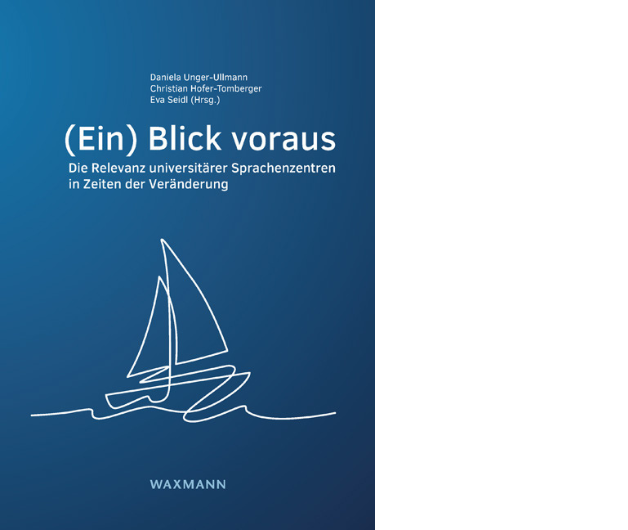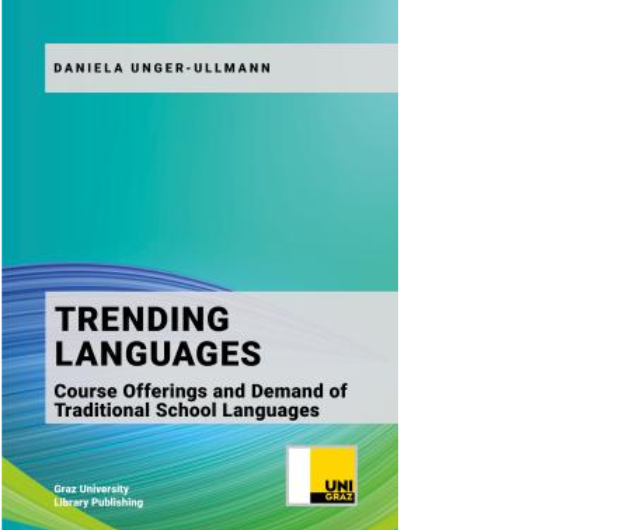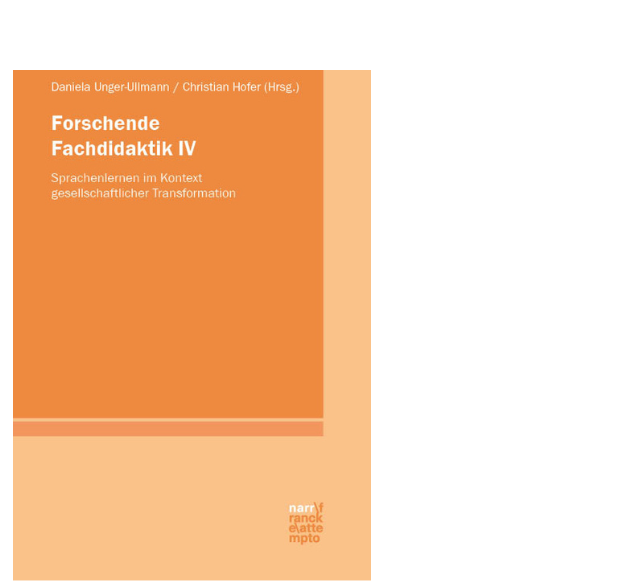New on the Bookshelf
Looking Ahead: The Role and Relevance of University Language Centers in Times of Transformation
Editors: Daniela Unger-Ullmann, Christian Hofer-Tomberger, and Eva Seidl
Year of publication: 2026
Publisher: Waxmann
Print ISBN 978-3-8188-0116-8
E-book ISBN 978-3-8188-5116-3

Content:
This specialized publication focuses on the question of what tasks university language centers can and should take on in a fast-paced era characterized by evolving learning needs and technological advances. How is the profile of university language centers changing? What teaching requirements are placed on language teachers in these centers? Which teaching and learning settings prove to be suitable for specifically addressing language learners? What are the central tasks that a university language center can fulfill? These are some of the considerations that the authors address in their academic texts. In line with the thematic diversity, the anthology is not only aimed at language instructors but also at educators from other disciplines, educational managers, and educational researchers who are looking for practical knowledge and inspiration for their professional work.

Trending Languages: Course Offerings and Demand of Traditional School Languages Based on the Example of treffpunkt sprachen – Centre for Language, Plurilingualism and Didactics
Author: Daniela Unger-Ullmann (ORCID: 0000-0002-4142-6484)
Year of publication: 2024
Publisher: Graz University Library Publishing
eISBN 978-3-903374-40-9
Content:
Interest in traditional school languages such as English, French, Italian, and Spanish has changed considerably in the tertiary education sector over the last few years. While the number of courses in “small-” and “medium-sized” languages is increasing and a tentative trend is emerging, particularly in Asian languages such as Chinese, Japanese, or Korean, the traditional languages often advocated by the European Union are losing importance. Based on the example of the University of Graz’s Centre for Language, Plurilingualism and Didactics, the development of the “main languages” of English, French, Italian, and Spanish is shown for the period from the 2007/2008 academic year to the 2022/2023 academic year. An in-depth analysis of the course offerings and demand enables conclusions to be drawn about students’ behaviour in terms of foreign language learning and leads to considerations concerning what the primary motives are for learning or not learning a foreign language.
Research Didactics IV. Language learning in the context of social transformation
Editors: Daniela Unger-Ullmann & Christian Hofer
Year of publication: 2024
Publisher: Narr Francke Attempto

Content:
In this volume, researchers, some of whom have been working in language teaching at universities for many years, take up relevant research topics from language teaching and work on them within the framework of didactic research projects. The project results described are sustainably integrated into language teaching in order to ensure quality development, promote the expansion of teachers' skills and transfer current educational science topics resulting from social transformation processes into a practice-relevant context. This holistically integrative research postulate is not only followed by these didactic research results, but also illustrates the consequences for the didactic educational culture that have resulted, for example, from the Corona crisis or from changes in the target groups of university language courses.